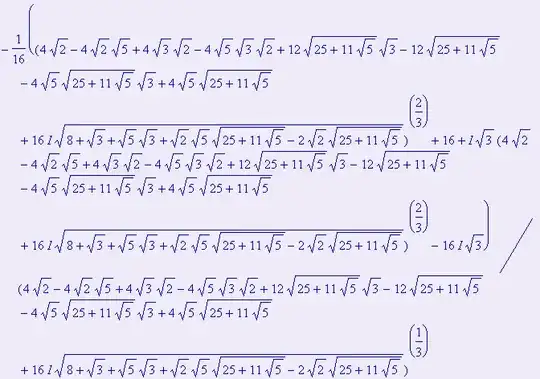In the book 101 problems in Trigonometry, Prof. Titu Andreescu and Prof. Feng asks for the proof the fact that $\cos 1^\circ$ is irrational and he proves it. The proof proceeds by contradiction and using the strong induction principle. (Problem on Pg:84, 70 in typeset; solution on Pg:126, 111 in Typeset). However, for Completeness, I'll append it here:
Proof of irrationality of $\cos (1^\circ)$
Assume for the sake of contradiction, that $\cos(1^\circ)$ is rational. Since, $$\cos(2^\circ)=2\cos^2(1^\circ)-1$$ we have that, $\cos(2^\circ)$ is also rational. Note that, we also have $$\cos(n^\circ +1 ^\circ)+\cos(n^\circ -1 ^\circ)=2\cos(1^\circ)\cdot \cos(n^\circ)$$ By Strong induction principle, this shows that $\cos(n^\circ)$ is rational for all integers $n \geq 1$. But, this is clearly false, as for instance, $\cos(30^\circ)=\dfrac{\sqrt{3}}{2}$ is irrational, reaching a contradiction.
But, as my title suggests, $\sin(1^\circ)$ is irrational, (look at the following image for its value!) 
Is there a proof as short as the above proof or can any of you help me with a proof that bypasses actual evaluation of the above value?
Image Courtesy: http://www.efnet-math.org/Meta/sine1.htm This link explains how to evaluate this value.
My next question is
Is $\tan(1^\circ)$ rational and is there a short proof that asserts or refutes its rationality?
P.S.: This is not a homework question.